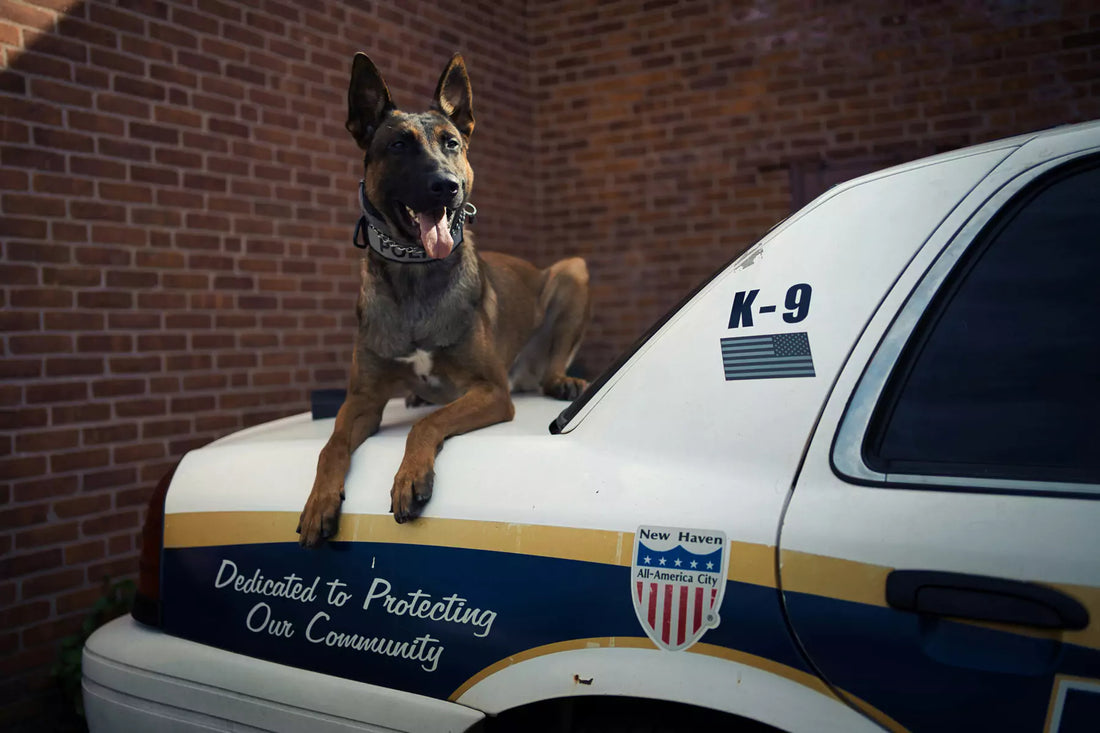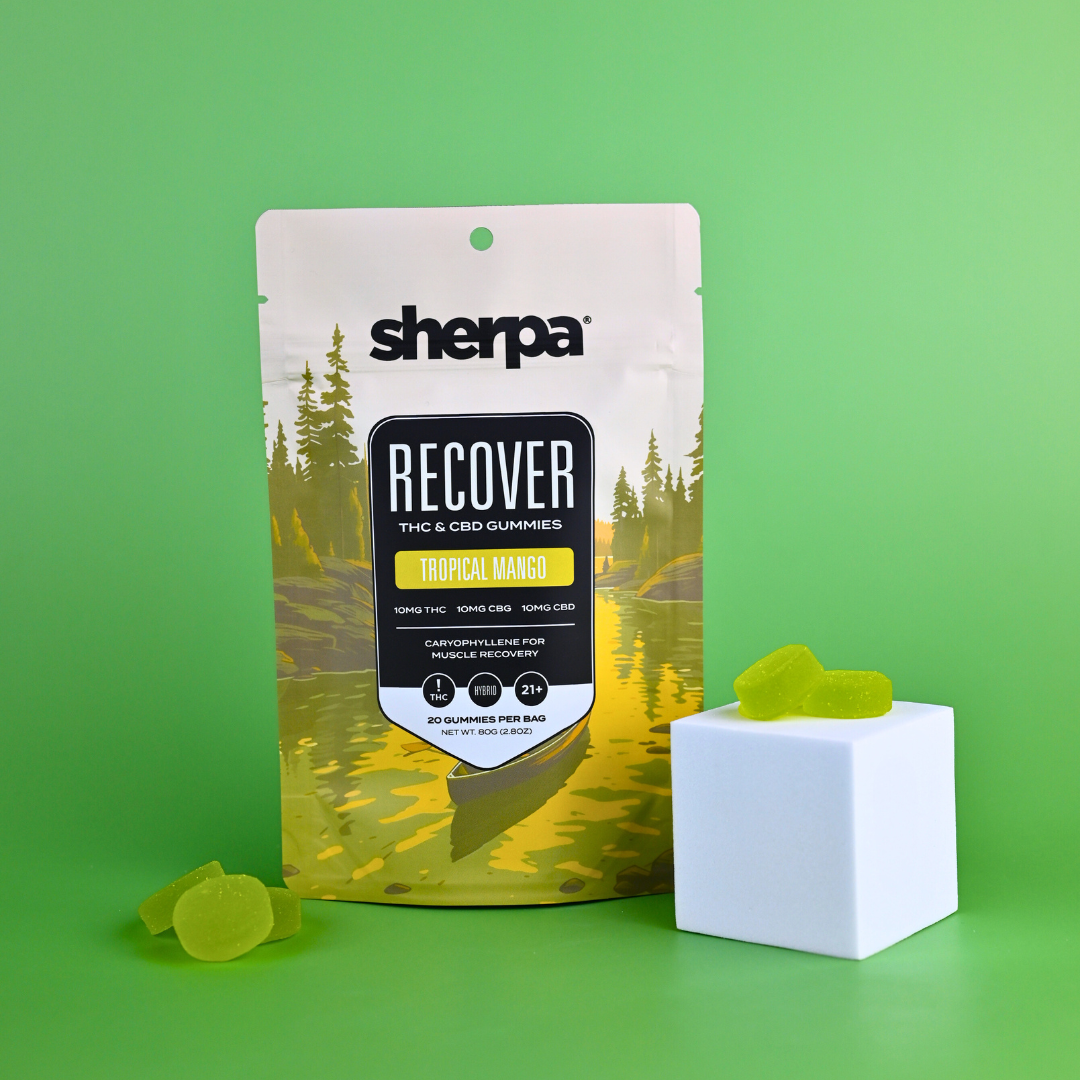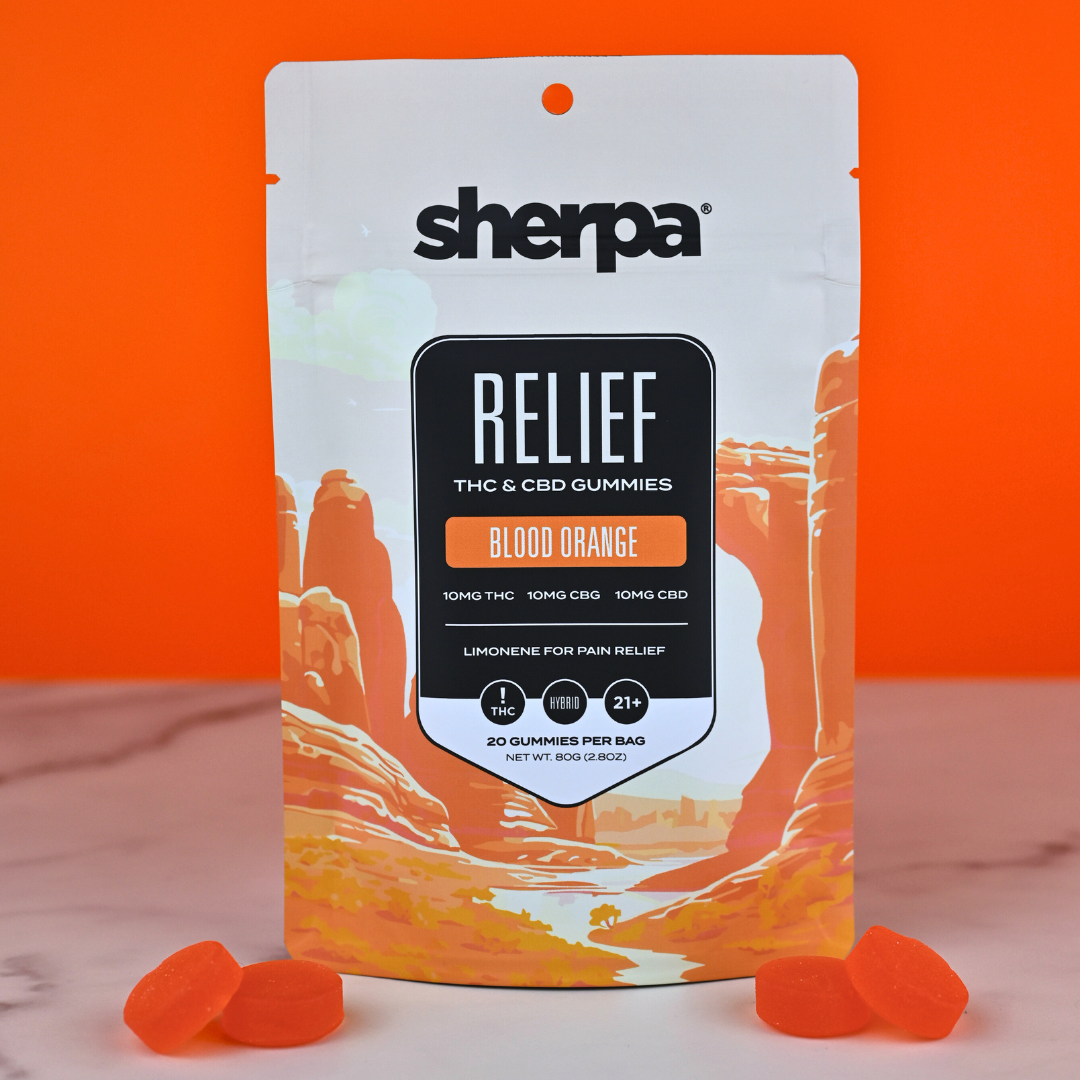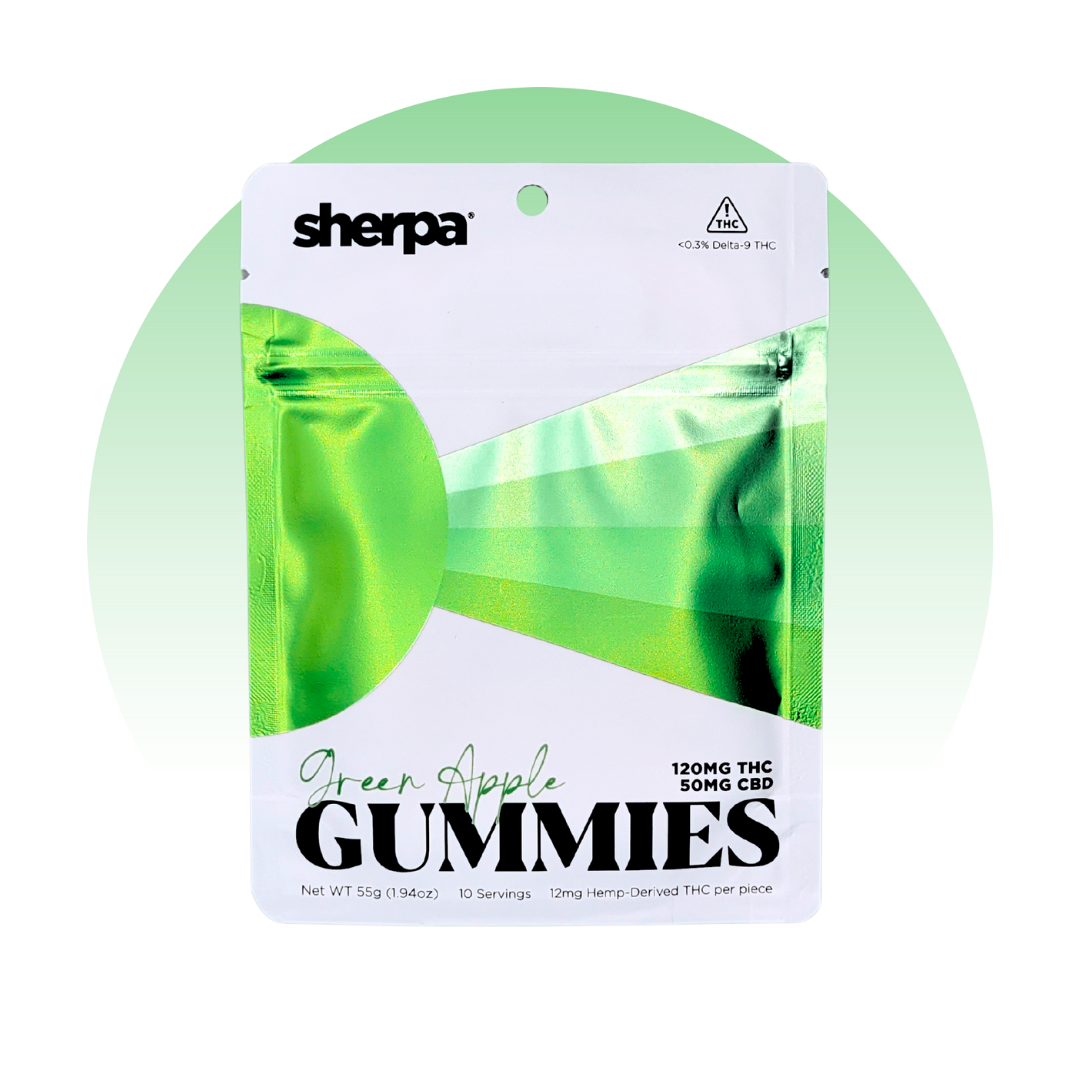
Our Blog
Can Drug Dogs Smell Edibles?
Can Drug Dogs Smell Edibles?
So we all know cannabis has gone a little more mainstream these days, but since some forms of it are still technically illegal at the federal level — and prohibited in some states — traveling with cannabis products can feel a little risky. You might be wondering what will happen if you're "caught" with it and if drug dogs are going to give you away.
Don't worry, we're here to assuage that paranoia. Before we answer that question though, let's first understand the legality of these products to get a foundation.
Understanding the Legality of Cannabis
So first things first, we need to define three terms: hemp, marijuana, and cannabis.
Cannabis is the umbrella term for a specific plant that belongs to the Cannabaceae family. It contains a multitude of chemical compounds, the most well-known of which are cannabinoids like THC and CBD. THC is responsible for the psychoactive effects associated with marijuana, while CBD is more commonly used for its therapeutic benefits without the high.
In America, marijuana and hemp are two categories of the cannabis plant defined by the 2018 Farm Bill. If a cannabis plant has over .03 percent THC content by dry weight, it's considered marijuana and federally prohibited. If it's under .03 percent, it's considered hemp, which is totally legal to possess and consume.
So that means that if your cannabis product was hemp-derived and also contains less than .03 percent THC by dry weight — like all of our products are — you are legally in the clear. But what does that mean for drug dogs, exactly? German Shepherds are smart, but there aren't too many of them that understand these legal nuances or that can operate the lab equipment necessary to test them.
Can Drug Dogs Smell Cannabis Edibles?
Short answer, yes. Drug dogs can absolutely smell edibles.
A dog's sense of smell greatly surpasses a human's. Some studies have shown dogs can smell things up to 12 miles away. While edibles might not smell like much to you — especially when compared to cannabis flower — a dog can sniff it out in your luggage, no problem.
There are a few steps you can take to minimize your exposure, which we'll get into in just a bit, but let's first take a closer look at these dogs, how they're trained, and what you should do if you encounter one.
How Drug-Sniffing Dogs Are Trained
Training drug sniffing dogs is a meticulous process that combines an understanding of canine behavior with a structured approach to scent detection. Once the dogs are selected by law enforcement, they go through basic obedience training to ensure they can respond reliably to commands. This foundational training establishes a strong bond between the handler and the dog.
Once basic commands are mastered and trust is established, training moves on to focus on scent association. Trainers introduce the dogs to specific drug scents, using a lot of methods to reinforce the connection between the smell and a positive outcome. For instance, when a dog successfully identifies the scent of a narcotic, they are rewarded with treats, praise, or playtime. This positive reinforcement encourages the dog to continue seeking out the scent.
As the dogs become better and better at identifying drugs, they progress to search exercises in different environments, like vehicles, luggage, or public spaces. These scenarios simulate real-world situations where drugs might be hidden, helping the dogs refine their skills. During these exercises, the trainers incorporate distractions to ensure the dogs remain focused and reliable, regardless of the surrounding noise or activity.
These mock scenarios play a vital role in the training process. Dogs are exposed to controlled situations where they must locate hidden drugs among various distractions, further solidifying their training. This not only enhances their detection skills but also builds their confidence in real-life situations.
Their training does not end after the initial phase though. Drug-sniffing dogs require ongoing training and refreshers to maintain their skills and adapt to new substances. Regular exercises and continued exposure to different environments help keep the dogs sharp and ready for their important work in law enforcement and security settings.
The Controversies with Drug Dogs
That said, there are situations in which drug-sniffing dogs haven't been used in good faith, and it has sparked several controversies, primarily surrounding issues of reliability, racial profiling, and legal implications. One major concern is the accuracy of the dogs' detections. While dogs have an exceptional sense of smell, studies have shown that their alerts can lead to false positives. This raises questions about the dependability of canine evidence in legal contexts, particularly when it leads to searches or arrests based on a dog's indication alone.
Another significant issue is the potential for racial profiling. Critics argue that the reliance on drug-sniffing dogs can disproportionately affect minority communities. In some cases, the presence of these dogs during traffic stops or in public spaces may lead to increased scrutiny of certain racial or ethnic groups, contributing to systemic biases in law enforcement practices.
Legal challenges have also emerged regarding the admissibility of evidence gathered through dog sniffs. Courts have grappled with questions about the standards for training and certification of these dogs and whether handlers can be biased in interpreting their dogs' alerts. The lack of standardized protocols across jurisdictions has led to inconsistencies in how canine evidence is treated in court.
What Should I Do If a Drug Dog Approaches Me?
First, remember that you're not doing anything wrong. Your Sherpa edibles are all hemp-derived, meaning they are perfectly legal to possess and consume in all 50 states. However, that doesn't mean that the officer or the dog are going to know that. Even if you explain yourself, there's a chance that the officer might think you're doing something illegal. They might detain you for questioning, they might confiscate your edibles, and they might even arrest you. It all depends on the situation and the officer in question.
The best thing you can do for yourself if you're approached by an officer with a drug dog is to be honest and polite. Tell the officer that you have legal hemp-derived products on you. Answer their questions to the best of your ability, and do what you can to work with them. You don't want to give them any reason to suspect you of any other crime, and you want the interaction to end as quickly and as easily as possible.
This shouldn't happen, but if the officer doesn't believe you, detains you, or arrests you, the best thing you can do for yourself is to keep quiet. If they ask you questions after you are arrested, tell them politely but firmly that you won't answer any questions without a lawyer present.
Remember, police are trained in interrogation techniques, and they will do what they can to probe you for information they can use against you. Contact a lawyer as soon as you are able.
So this is all good advice, but better advice is to avoid the situation altogether. The first step in that endeavor is to understand where you might encounter a drug sniffing dog.
Where Do Law Enforcement Officers Deploy Drug Dogs?
There are a handful of situations where you might be confronted with a drug dog. Some of the most common locations are airports and transportation hubs. Dogs are frequently used to screen luggage and passengers, helping to intercept illegal drugs before they can reach their destinations.
Public events and festivals are another venue where drug dogs may be deployed. Officers may use them to patrol crowds, searching for drugs in a preventive capacity. They're also often seen at screening checkpoints where tickets are taken.
Schools may also use drug dogs as part of efforts to maintain safe spaces for students and families. Officers may conduct routine checks in these areas to deter drug use and educate the community about the dangers of substance abuse. Dogs often sniff lockers, for example, especially if the administration suspects students of using illicit drugs.
Now these first three examples are easy enough to avoid. Just don't bring edibles with you. If you want to elevate your concert-going experience a little, take your edible in the parking lot. If you want to enjoy them on vacation, mail them to where you're going. By thinking ahead, you can avoid a lot of headaches.
Another place that you might encounter a drug dog is during a traffic stop. Officers may use drug dogs to conduct sniffs of vehicles, particularly if they have reasonable suspicion of drug-related activity. But the guidance around such stops is a little fuzzy. Let's talk about that.
How Long Do You Have to Wait for a Drug Sniffing Dog?
About 10 years ago the Supreme Court ruled that police cannot hold suspects without probable cause, even if it's less than a few minutes. In Rodriguez v. United States, the late Ruth Bader Ginsberg declared that the constitutional protections against unreasonable search and seizure prohibit police officers from extending a traffic stop to allow a drug-sniffing dog to show up since he was not arrested and the stop had concluded.
Now we're not going to go down some convoluted "sovereign citizen" rabbit hole here as if there are some magic words to say that will get you out of a drug search. Generally speaking, you should refuse to do searches politely. If they're asking you if they can search you or your vehicle, they're asking for your consent to do something they don't currently have the legal authority to do. You can ask if you are being detained or arrested, but use your best judgment given the situation. Don't lie to the officer, and don't create more problems for yourself by being unreasonable or unhelpful. Remember, you're not doing anything wrong, even if the officer suspects you might be.
So, we get that this might have you thinking that having edibles on you is a pretty big liability and one that you might want to avoid altogether. We're not trying to be alarmist or anything — we're just trying to be realistic. That being said, there are a few things you can do to diminish the risk. Smell-proof bags, for one.
Do Smell Proof Bags Work?
So like we said above, dogs have an extraordinary sense of smell — estimated to be 10,000 to 100,000 times more sensitive than that of humans. Even the slightest trace of cannabis can be detected, especially if the dog is highly trained and motivated. Smell-proof bags can go a long way in helping you avoid their attention.
Keep in mind though, not all smell-proof bags are created equal, and they aren't fool-proof. Higher-quality bags feature multiple layers and specialized materials designed to contain odors more effectively than cheaper alternatives, but if a dog is particularly skilled or the bag is poorly sealed, the scent can still get out.
The effectiveness of smell-proof bags can also depend on environmental conditions. Temperature, humidity, and airflow can impact how odors escape. For example, if a bag is exposed to heat, the materials inside may release more scent, increasing the likelihood of detection.
Also keep in mind that dogs aren't only going off of smell alone. Law enforcement and their K-9 partners utilize a combination of techniques to locate drugs. They rely not only on scent but also on their experience and training to identify the presence of illegal substances. A dog might be drawn to a person's general scent or behavior, leading them to investigate further, regardless of whether a smell-proof bag is used.
Alright, we know that's a lot of information to digest about dogs, drugs, and their detection abilities. So let's get right down to it. Should you travel freely with edibles, or should you only partake at home?
Can I Travel with Edibles?
According to the letter of the law, yes. Hemp-derived edibles like the ones Sherpa sells are perfectly legal to travel with, even across state lines. Regulations might change in the future, but for the most part, there doesn't seem to be any appetite for regression and prohibition in the cannabis industry. For the most part, the regulations lawmakers are talking about seek to refine how these products can be marketed, where they can be sold, and to whom.
However, you are taking a risk if you throw a bag of edibles into your carry-on. While we expect law enforcement officers to understand the legal nuances of these products, we can't guarantee they will. If you want to go through with it though, here are a few tips for traveling as safely as possible.
Tips for Bringing Edibles Along
Traveling with cannabis edibles can be a bit tricky, but with the right strategies, you can ensure a discreet and hassle-free experience. Here are some practical tips to keep in mind:
Know the Laws of Your Destination
Before you travel, familiarize yourself with the cannabis laws of your destination. Some states and countries have strict regulations regarding possession, even if cannabis is legal elsewhere. Understanding these laws will help you avoid unnecessary complications.
Choose the Right Packaging
Carry your edibles in a way that doesn't draw attention. You can put them in with your vitamins or in a pill container. Avoid bright colors or logos that indicate cannabis, but do keep the original packaging in case you need to prove that your cannabis came from a legal, reputable source.
Keep It Sealed
Ensure your edibles are securely sealed in airtight containers to prevent any odors from escaping. Smell-proof bags or containers can help mask the scent too, but make sure you don't handle the edibles and then touch the outside of the bag.
Keep It to Yourself
When traveling with friends, avoid sharing your edibles too openly. Only inform those you trust, and consider keeping the stash limited to yourself to reduce the risk of anyone inadvertently attracting attention.
Avoid Acting Conspicuous
Be mindful of your behavior when consuming or carrying edibles. Avoid discussing your edibles in public or displaying them openly. If you need to consume, find a private location where you won't attract attention.
Stay Informed About Policies
If you're flying, check the specific airport policies regarding cannabis. While state laws may permit cannabis use, federal regulations apply at airports, so be prepared to navigate these guidelines carefully.
Final Thoughts on Cannabis and Those Drug-Sniffing Dogs
It's not going to be forever, but right now, it's undeniable that there are some gray areas that cannabis users need to navigate, and when it comes to the risks, you have to determine for yourself which are acceptable and which aren't. Overall, just be smart. There's no real need to walk into a festival with two fistfuls of edibles, daring a drug dog to come find you so you can snottily explain to the police officer that these are actually legal. That's just asking for trouble that you probably want to avoid unless you're one of those "rights auditor" types.
Our final piece of wisdom? If you keep things discrete and try to avoid risky scenarios, you should be totally fine. And maybe invest in some really high-quality, smell-proof bags if you want to avoid the hassle altogether.
Editor's Note: We are not lawyers, and nothing in this article constitutes legal advice. This is for informational purposes only and should not be viewed as anything but.





